Water heaters, those unsung heroes of comfort, often go unnoticed until a cold shower rudely reminds us of their importance.
As an experienced professional, I can tell you that understanding your water heater, especially how to reset water heater, how it can save you from unexpected chills and unnecessary repair costs.
This article will delve into the intricacies of your water heater, from the basic components like the thermostat and reset button to the safety measures required when resetting it. We'll also explore what to do when the reset button doesn't do the trick and when it's time to call in the pros.
We'll touch on energy-saving control circuits and external temperature sensors for those interested in advanced topics.
Water heaters, whether gas or electric, have several key components that work together to provide hot water. The water heater tank is the main component, a large metal cylinder that stores and heats the water.
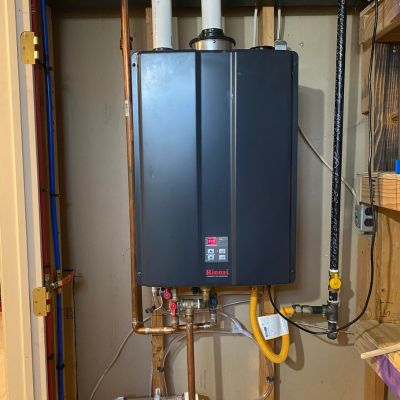
Inside the tank, you'll find the heating mechanism: a gas burner or electric heating element controlled by a thermostat. The thermostat is crucial as it regulates the water temperature inside the tank.
Another important component is the reset button, a safety device that trips when the water temperature exceeds a safe limit, shutting off power to the heating elements.
Understanding these components is the first step towards mastering your water heater's operation and maintenance.
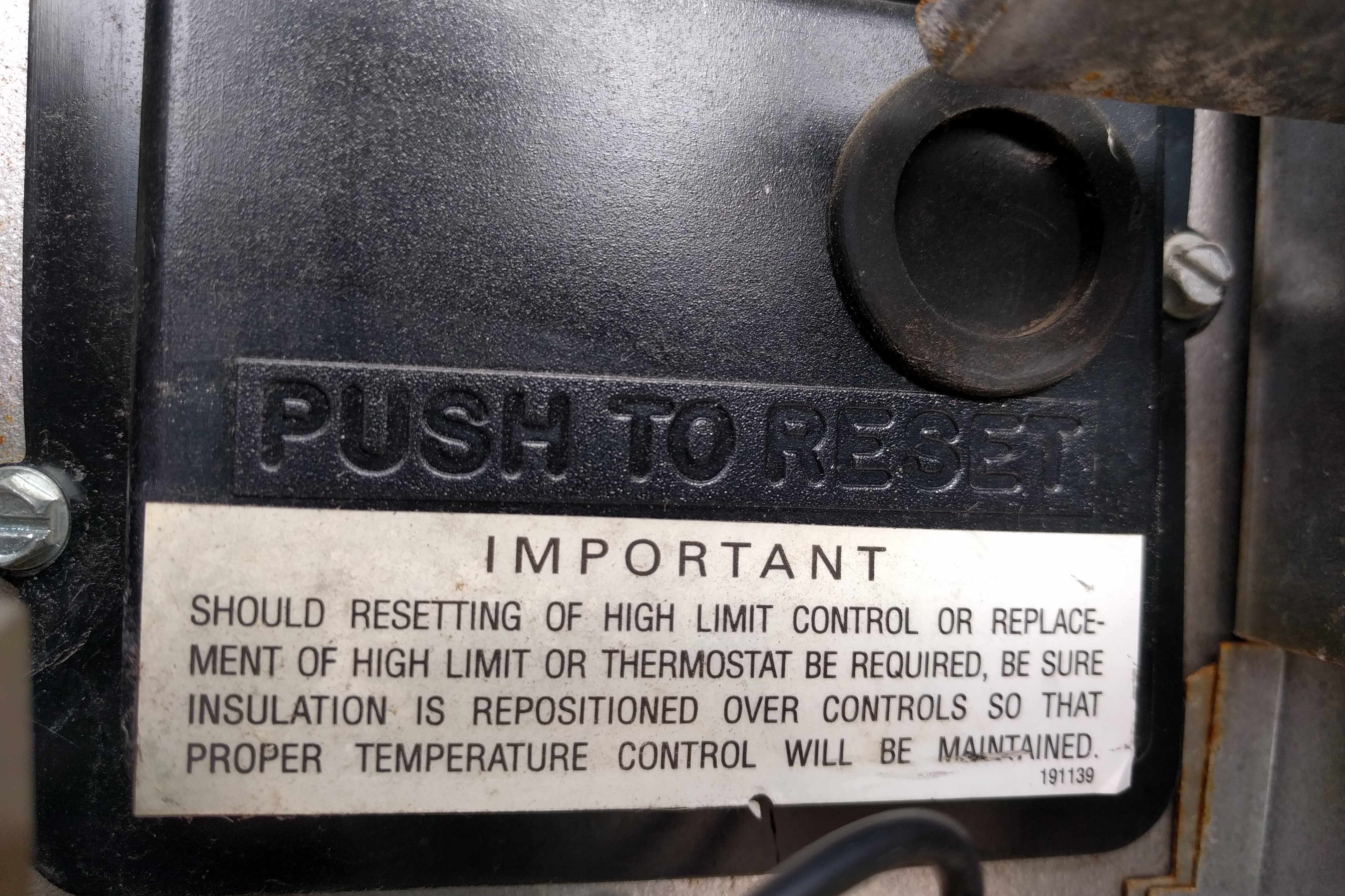
The pilot light is a small, continuously burning flame in gas water heaters. Its primary function is to ignite the gas from the main burner when the thermostat signals the need for heat. This small flame plays a big role in the operation of your water heater.
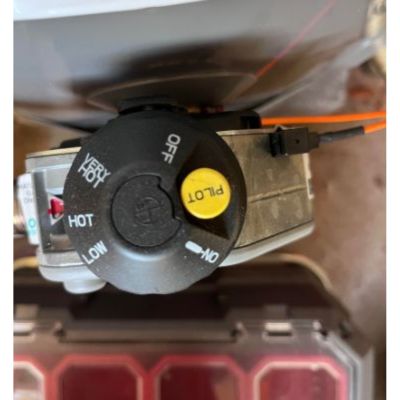
If the pilot light goes out, the main burner won't ignite, and your water heater won't heat the water. Keeping the pilot light in good working order is essential for the smooth operation of your gas water heater.
The thermal cutoff (TCO) is a safety device in water heaters that prevents overheating. If the temperature gets too high, it interrupts the electric current or shuts off the gas supply, preventing damage and reducing the fire risk. Keeping the water heater within safe temperature limits is a crucial safety feature.
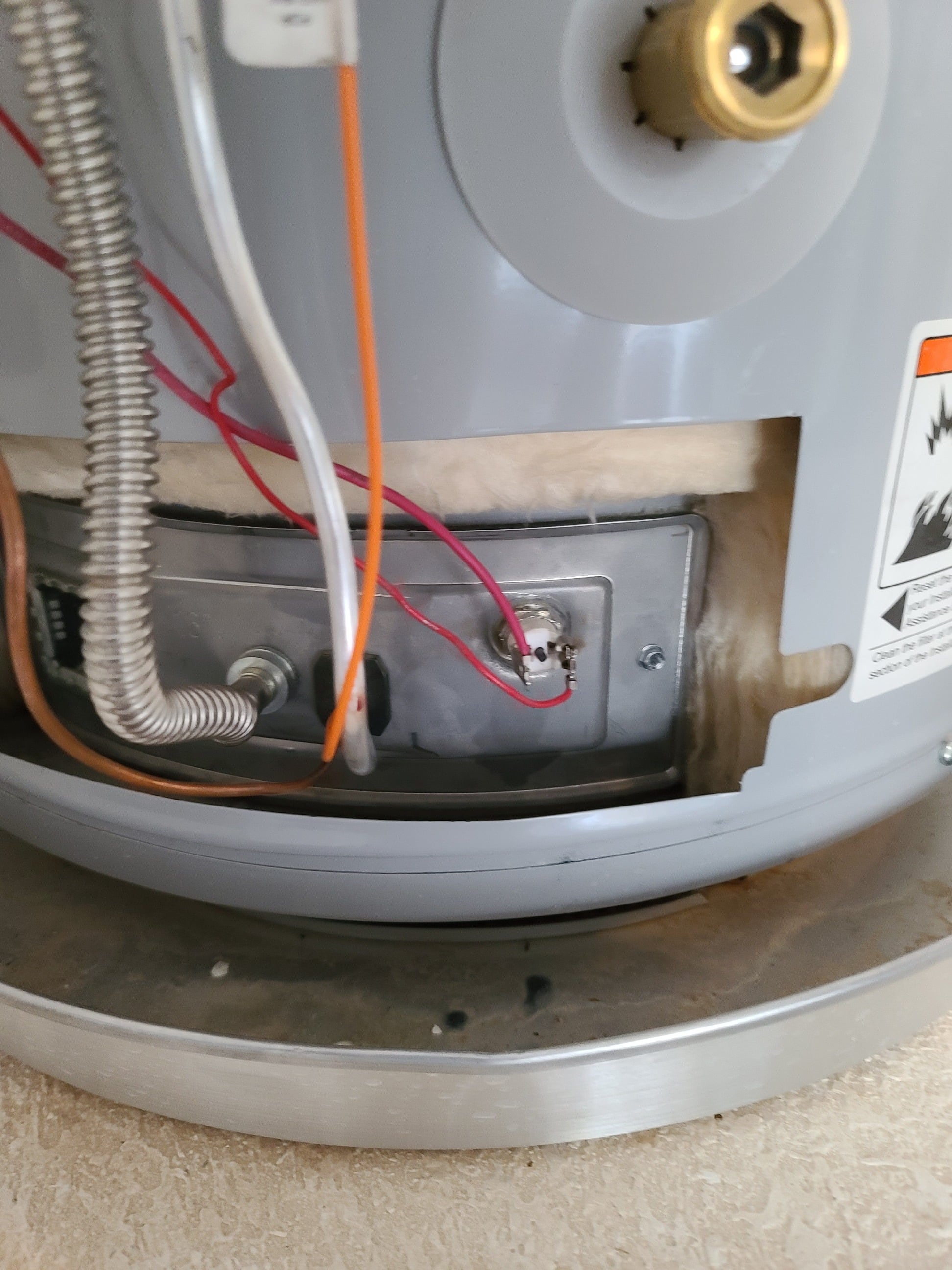
Electrical safety is paramount for all electrical appliances. Mishandling electricity can lead to serious injury or even death.
Therefore, it's crucial to take precautions when resetting your water heater. Always ensure the power supply is turned off before working on the heater.
Avoid touching electrical components with wet hands or while standing on a wet surface. Remember, safety should always be your first priority when dealing with electrical appliances.
Circuit breakers play a vital role in electrical safety. They protect an electrical circuit from damage caused by overcurrent or short circuits.
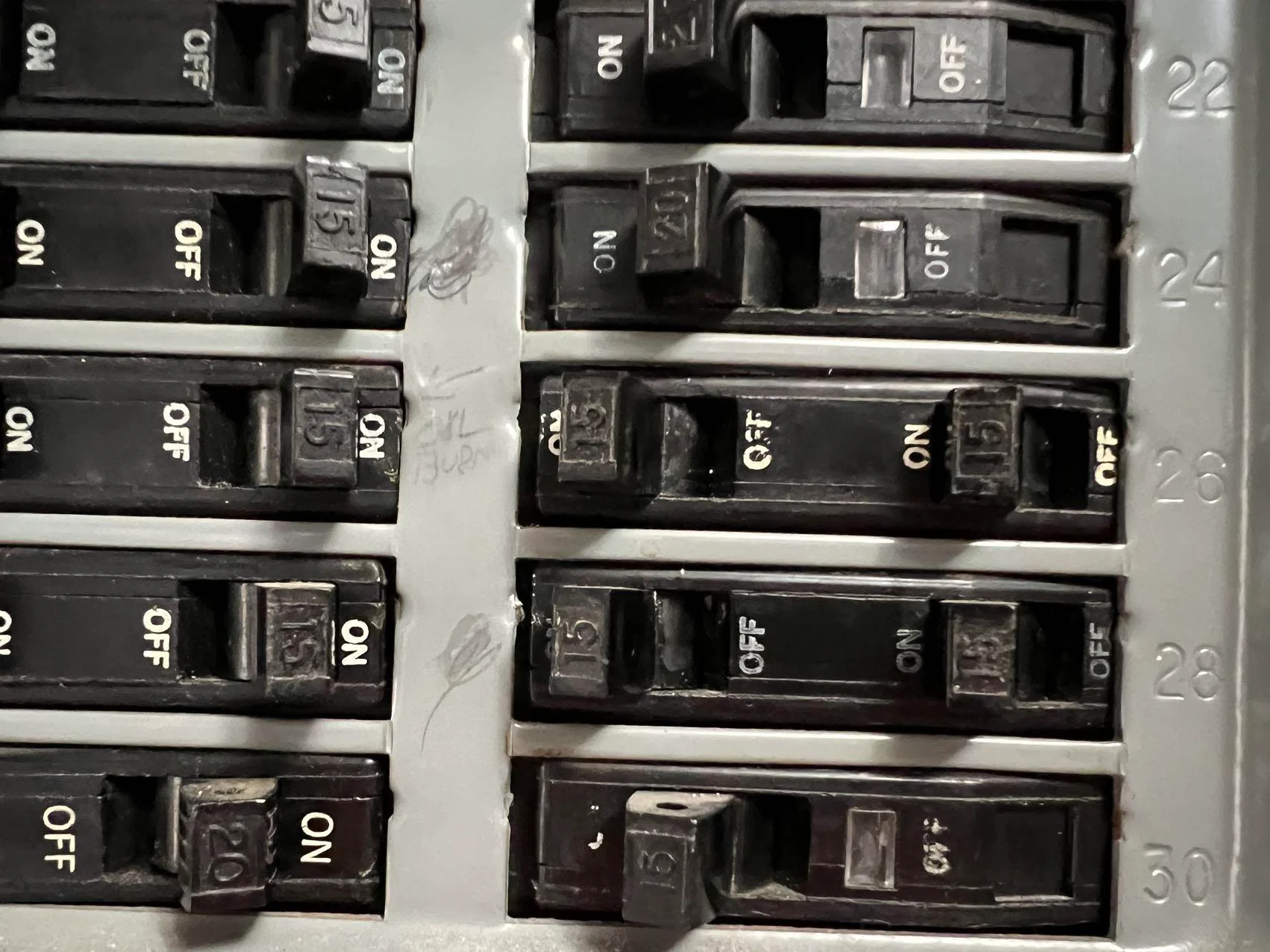
In the context of a water heater, the circuit breaker will interrupt the power supply to the heater if there's an overload or short circuit. Before resetting your water heater, it's important to turn off the circuit breaker to ensure your safety.
Residual-current devices (RCDs) or ground fault circuit interrupters enhance electrical safety by monitoring current flow. If they detect a leakage current to the ground, they swiftly cut off power, minimizing the risk of electric shock. Connecting a water heater through an RCD adds an extra safety layer during resets.
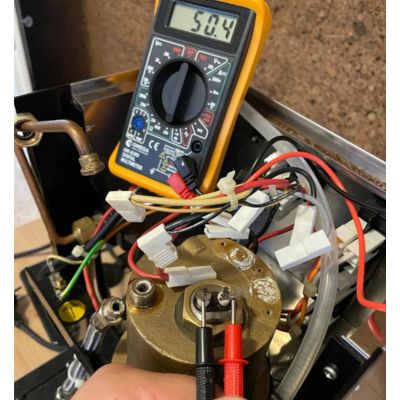
The reset button on a water heater is a vital safety feature, usually red and situated near the heating element. It's designed to turn off the heater if the water temperature becomes unsafe. Located beneath a removable panel, it's the key to resetting the heater when needed.
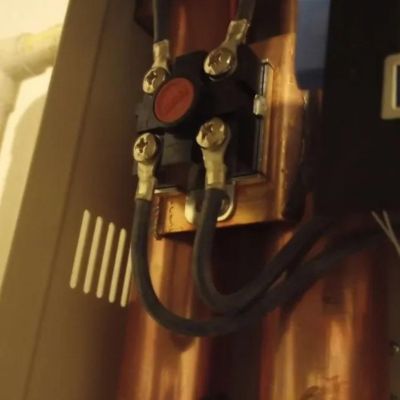
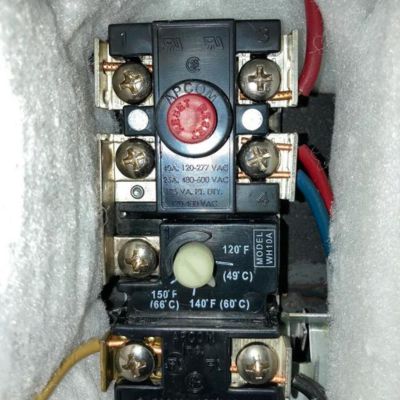
The reset button on a water heater can be found on the upper thermostat or lower part, varying by model. Sometimes, you may need a screwdriver to access it by removing a cover plate. It is typically marked and easy to identify. Always ensure the power supply is turned off before attempting to locate the reset button for safety.
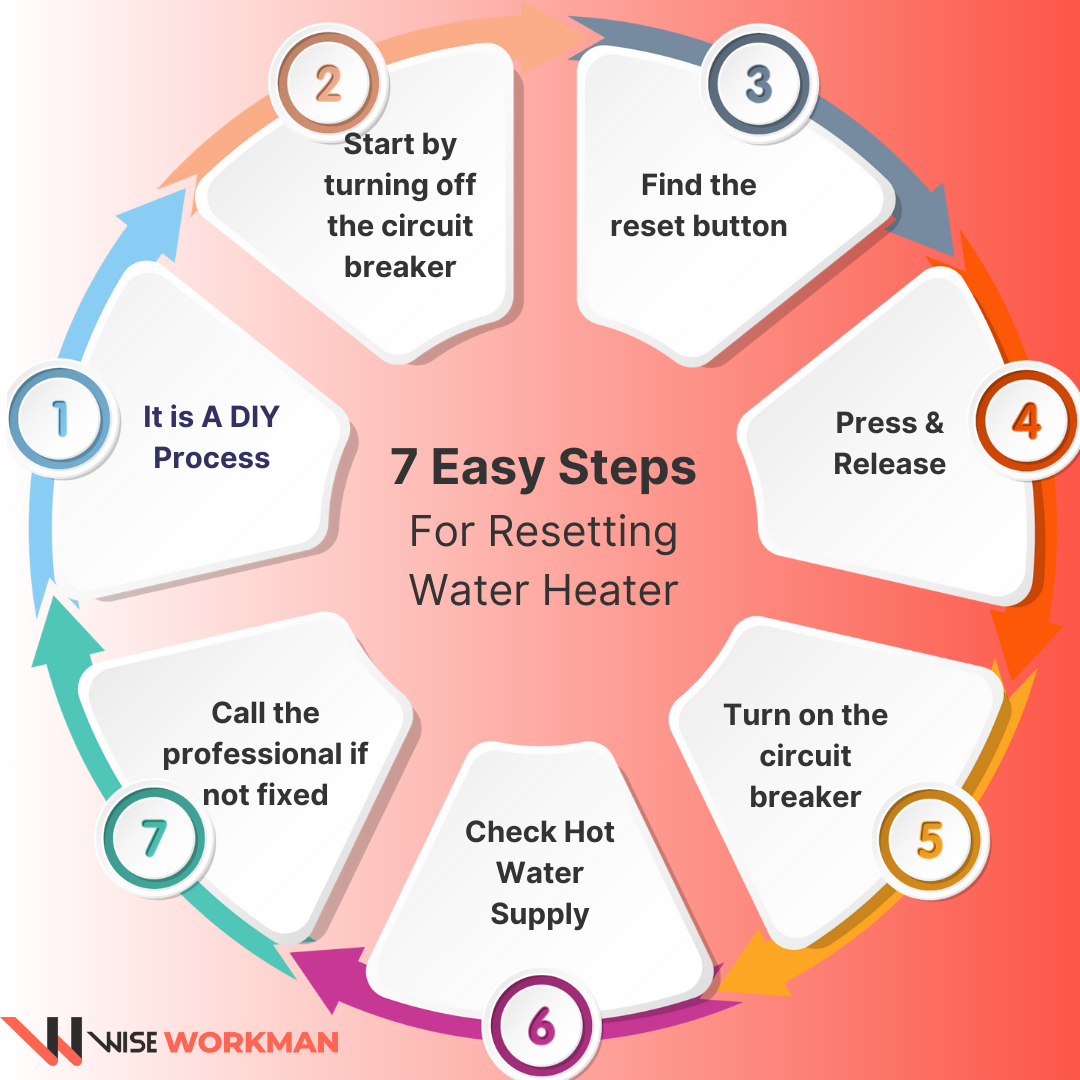
The thermostat in your water heater monitors and controls the temperature, preventing overheating. If the water gets too hot, the thermostat triggers the reset button, cutting power to the heating element. Recognizing the thermostat's role is crucial for troubleshooting and maintaining proper water heater function.
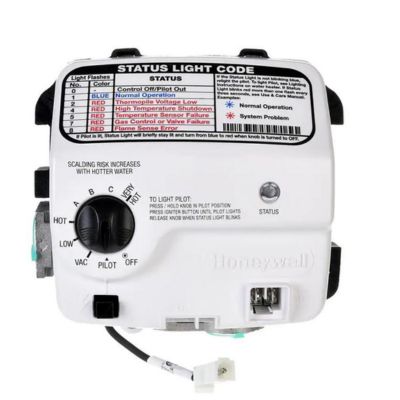
It could be due to various issues if your water heater doesn't reset. One common problem is a faulty thermostat. If the thermostat fails, a heating element can get stuck, leading to overheating and tripping the reset button.
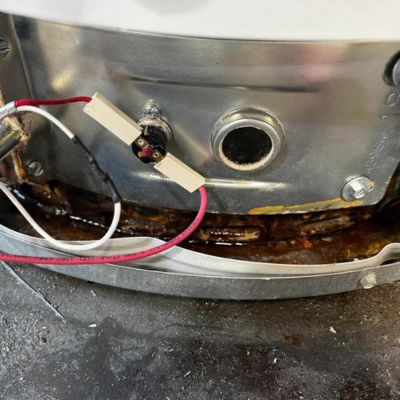
Another issue could be bad wiring. Loose wires or the absence of a lug connector between wires with two different types of metals could cause reset issues.
A worn-out heating element, a water leak, or a broken reset button could also be the culprit. In most cases, replacing the faulty component can solve the problem.
However, if you're uncomfortable doing this yourself, it's best to call a professional.
If your water heater repeatedly trips the circuit breaker or reset button without an apparent cause, it signals a potential complex issue.
Calling a professional is essential as it could indicate problems like a heating system short, loose wire, or faulty thermostat. When you doubt your water heater's operation, prioritize safety and seek professional assistance.
Energy-saving control circuits play a crucial role in modern water heaters. These circuits are designed to optimize the water heater's energy consumption, ensuring it only uses the necessary amount of energy to heat the water.
This is achieved by continuously monitoring the temperature of the water and adjusting the heating element accordingly. For instance, the control circuit activates the heating element if the water temperature drops below a certain point. Conversely, the control circuit deactivates the heating element if the water temperature exceeds a set point.
This dynamic adjustment helps to maintain a consistent water temperature while minimizing energy usage, making your water heater more energy-efficient and cost-effective.
External temperature sensors are found in some water heaters. These sensors measure the ambient temperature outside the water heater and adjust the heating mechanism accordingly. If the ambient temperature is above or below a certain point, the sensor signals the control circuit to adjust the heating mechanism, maintaining the set temperature range.
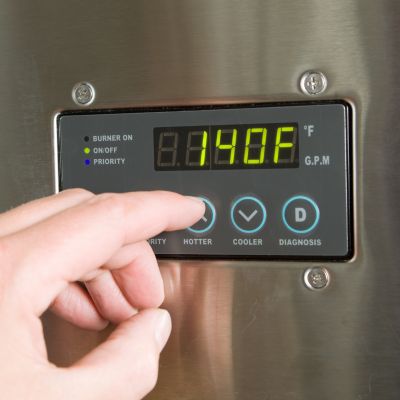
This automatic adjustment helps to ensure that the water heater operates efficiently, regardless of the external temperature. It's another way modern water heater technology works to save energy and reduce costs.
Some signs that your water heater needs reset include a lack of hot water, too hot water, or a tripped circuit breaker. If you notice any of these signs, checking and resetting your water heater is a good idea.
It could be a sign of a more serious issue if you need to reset your water heater frequently. Frequent resets could indicate a faulty thermostat, wiring issues, or a problem with the heating element. In such cases, it's best to seek professional help.
The reset procedures for gas and electric water heaters differ due to their distinct mechanisms. The process involves locating and pressing the reset button for electric water heaters. For gas water heaters, you may need to relight the pilot light.
Resetting your water heater can help it function properly, indirectly improving its efficiency. However, regular maintenance, proper insulation, and timely repairs are more important for long-term efficiency.
While resetting a water heater is generally a safe process, it does involve dealing with electrical components. Therefore, following safety precautions like turning off the power supply before starting is crucial. If you're uncomfortable with the process, it's best to call a professional.
In this comprehensive guide, we've delved into the intricacies of how to rest water heater, from understanding its basic components to exploring advanced features like energy-saving control circuits and external temperature sensors.
We've emphasized the importance of safety precautions and detailed the step-by-step process of resetting your water heater. We've also discussed what to do when your water heater refuses to reset, including when to seek professional help.
Remember, while handling minor issues yourself is empowering, don't hesitate to call in the experts when needed. With this knowledge, you can ensure your water heater functions efficiently, providing a steady hot water supply while maximizing energy efficiency.